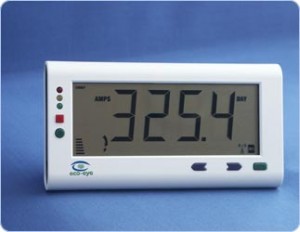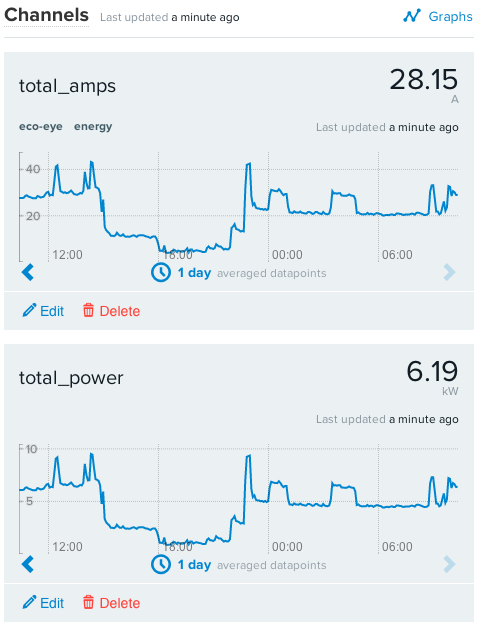A few years ago my minions installed an Eco-Eye energy monitor in the Labs. We bought it with a serial cable and it has been connected to a Mac Mini to collect data and push it to Cosm (now Xively) via a Perl script. The serial output is 19,200 baud, 8-none-1.
The supplied serial cable uses a Prolific PL2303 USB to serial chip and so the Mac needs a driver installing which you can get from Prolific here. The current version creates a device named /dev/tty.usbserial (which is much better than the previous cryptic name).
The Eco-Eye data is simple – two bytes which make up the reading are sent every four seconds consisting of msb then lsb representing amps times 100. So, the reading in amps to two decimal places is:
amps = ((byte1 x 256) + byte2) / 100
There is a Perl module to handle posting to Xively called Net::Parchube (because Xively was Cosm was Parchube) which makes that part simple. The hardest part is keeping the bytes in sync – when you start the script you don’t know which one you get first, and sometimes one doesn’t turn up. To handle this, the script has a timeout which makes sure dud readings don’t make it through and corrupt your data. It also averages over seven samples to post a reading about every 30 seconds.
Output will look something like this:
sample: 1, msb: 11, lsb; 18, amps: 28.34 sample: 2, msb: 11, lsb; 36, amps: 28.52 sample: 3, msb: 10, lsb; 244, amps: 28.04 sample: 4, msb: 11, lsb; 24, amps: 28.4 sample: 5, msb: 11, lsb; 28, amps: 28.44 sample: 6, msb: 11, lsb; 8, amps: 28.24 sample: 7, msb: 10, lsb; 240, amps: 28 2014-08-12 10:15:18 avg_amps: 28.28
And on Xively:

As you can see, the script also sends a power figure calculated from the amps.
The script runs in the foreground which is not ideal, but it does the job. You can get it from Github here: https://github.com/cllarky/perl-sensor-net/blob/master/eco-eye/serial-cosm.pl